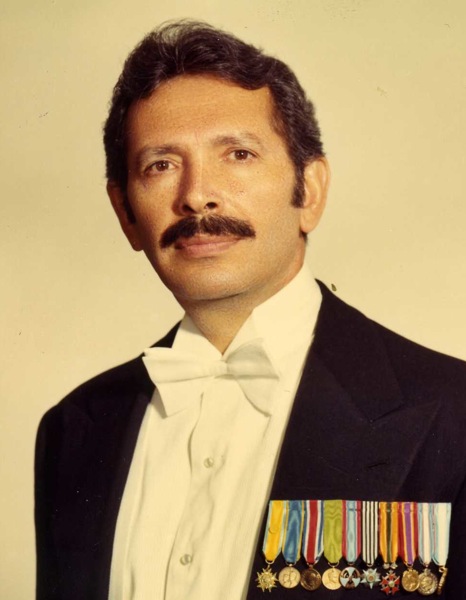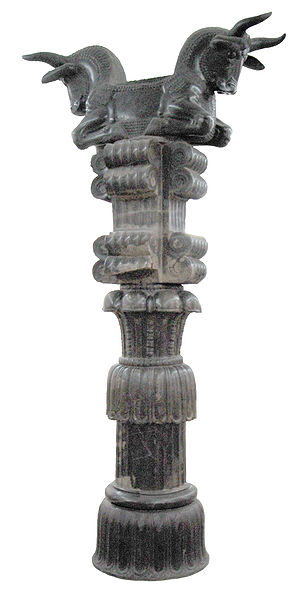Open Letter to President Obama
Retired Gen. Nasser Farbod
Former Chairman of the Joint Chiefs of Staff of Iran’s Armed Forces
December 2008
To:
President Barack H. Obama
The White House
Your election as the President of the United States of America has aroused new hopes among many people for more effective and substantively different U.S. foreign policies. One particularly challenging foreign policy issue facing your administration is the current U.S./Iran standoff. I would like to take this opportunity and offer my thoughts on how your administration may best approach this longstanding issue. I do so as one who has received much of his military training in the U.S. in the early 1950s, represented Iran in the U.S.-backed Central Treaty Organization in Turkey in the early 1960s, held the position of Chairman of the Joint Chiefs of Staff of Iran’s Armed Forces during the early months of the provisional government headed by premier Bazargan after the 1979 revolution, and has since remained active and concerned with the historical developments affecting Iran.
I have previously written open letters to Mr. Newt Gingrich, the former Republican Speaker of the U.S. Congress, and to the former President George W. Bush to register my opposition to the use and threat of military action against Iran. Hard power approaches toward Iran in the past have been by and large the traditional approach of the Republicans, as in when President Eisenhower reversed the more conciliatory policies of the Truman administration towards premier Mossadegh over the oil nationalization issue and instead opted to violate Iran’s sovereignty in 1953 by overthrowing the latter and restoring the Pahlavi Shah to absolute power. In the 1970s President Nixon threw more support behind the Pahlavi monarch overlooking the rising popular grievances against his rule in contradistinction to both the Kennedy administration earlier, which had pressed the monarch to moderate his policies, and the Carter administration later with its greater emphasis on human rights.
Mr. President, as you know, with the end of the Cold War, the U.S. remained as the sole superpower and, subsequently, with the terrorist attacks of September 11, 2001, the Bush administration’s unilateral military responses reshaped the heart of the Middle East in ways that have left it with greater insecurities, particularly in Iraq and Afghanistan, but not exclusively there. Military unilateralism has negatively affected Iran’s internal politics as well, all the while enhancing its regional standing by eliminating its regional rivals. And, of course, there has been the ever-present worrisome possibility of a direct military strike against Iran, a designated member of the so-called “axis of evil” countries.
I would like to share with you the central concern of my compatriots in the hope that your administration will break with the policies hitherto pursued towards Iran. Iran’s modern history includes struggles by its people to free their nation from manipulation by foreign powers and to establish a democratic state. After more than a century of struggle, contemporary Iran is free from political dependency on hegemonic foreign powers. However, despite this historical memory, which Iranians share with the peoples of the region, many are eager to establish friendly relations with the U.S. Unfortunately, the other aspirations of Iranians for prosperity, democracy, and respectful relation with the U.S. are frustrated today and are held hostage to the U.S./Iran standoff over all the bilateral issues between them. I fear, short of rational approaches to this problem, escalation of hostilities will bring further unwelcome changes to the people of Iran.
Mr. President, it seems the age of unilateralism has come to an end and one sees in the world today an increasing number of rising centers of power. At the same time the peoples of the developing world are no longer content to be held back or to remain captive to the interests of one or another superpower. The U.S. policies should reflect the changing circumstances and the new sensibilities. It is neither wise for the U.S. to embrace isolationism nor to impose its power on others. The new emphasis should be on what different nations have in common and on devising ways to resolve mutual problems peacefully and cooperatively, including assisting developing nations economically.
Lastly, let me remind you of the mid-1970s when the U.S. assisted Iran under the late Pahlavi monarch to assume the role of securing the all-important, geopolitically significant Persian Gulf. Unfolding events had made this outcome nearly a matter of necessity: the British forces had withdrawn from the region in 1971; the U.S. was entangled militarily in the Indo-Chinese wars in the Far East; and the shah of Iran was more than eager to play a role in filling the strategic vacuum in the Gulf region. Hence: the new security arrangement, post-British pullout, with Iran as a significant strategic player in the region.
However, as we know, the new balance of forces was rather short-lived and soon events propelled the region and the world in a new and perilous direction: The 1979 revolution in Iran ended the Pahlavi monarchy; Iran and Iraq fought a long, bitter war from 1980 to 1988; Iraq invaded Kuwait in 1990, which led to the Gulf War I and the stationing of the U.S. military forces in the region; the latter further fueled the anger and resentment of Islamic extremists and helped bring about the terror attacks of 9/11; the U.S. announced the Bush Doctrine and intervened militarily in the region, leaving in its path an uncertain legacy of deep insecurity and instability as well as imposing an increasing economic burden on the U.S. taxpayers at a time of growing difficulties at home.
Mr. President, I am of the opinion that the major problems of the Middle East in places like Iraq, Afghanistan, Lebanon, and the Israeli Occupied Territories are linked to the unresolved problem of Iran in relation to the U.S. Given this, I urge your administration to carry through with your promise of an engaged and vigorous diplomacy with Iran without preconditions. I urge that your administration considers recognizing a strong and regionally re-engaged Iran.
Iranians are keen on once more assuming their rightful place among the nations of the region and on playing a constructive role in shaping the security arrangements thereof. I believe a resolution of the U.S./Iran standoff in a manner that includes this strategic recognition can serve the national interests of both the U.S. and Iran. The opportunity is ripe for exploring the possibility of inclusive regional security integration. It would offer a respectable way out of the present strategic impasse.
It would also help de-escalate tensions between our two countries, lead us wisely away from the harmful policies of militarism and sanctions, and indicate respect for Iran’s nationalist sensibilities. Furthermore, it would enable your administration to bring home more U.S. troops from the Middle East as that region’s security environment begins to improve. In sum, the legitimate national interests of both the U.S. and Iran can be secured by redefining a new relationship that is characterized not by mutual hostility and escalation of tensions but by mutual respect, a search for commonality of interests, and interdependence.

